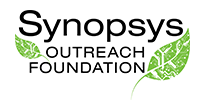While selecting the top projects at today’s fair, please remember that our purpose in holding a fair is to ENCOURAGE students’ scientific interest and work.
We ask that you …
- Introduce yourself. Smile and address the student as you would a colleague.
- Spend equal amounts of time with each project (about 10 minutes).
- Let the student do most of the talking, but feel free to cut short a “canned” presentation. A very short project summary (1 to 2 minutes) is a good way to start an interview.
- Check to make sure that your tone of voice conveys interest, not skepticism.
- Refrain from criticism. Use questions such as “Could you have …?” rather than “Why didn’t you?”
- Probe to gain confidence that the student(s) did the work; do not accuse students of not doing the work.
- Do NOT give a student new information directly during the interview; use leading questions.
- Keep in mind that some of these students speak English as their second language and have limited resources.
- Don’t tell a student that a prize will be forthcoming – this can lead to disappointment and confusion if other members of your team have other ideas.
- Don’t tell students they are finished with judging as there may be other judges who will want to talk to them
Note: The Santa Clara Valley Science and Engineering Fair (SCVSEFA) is committed to providing an environment for students, volunteers, and employees free of harassment of any kind. If you feel that you have been harassed or feel you have witnessed harassment, please report the incident to any member of the SCVSEFA Board of Directors.
Here are some questions that judges might ask …
Why/How did you get the idea and choose this project?
What did you learn from your background search?
What do you mean by (terminology or jargon used by the student)?
How many times did you repeat the experiment or test?
How did you account for variation in data?
What help did you receive from adults or internet sites?
What was the most important thing you learned from the project?
If you repeated the project again, what would you do differently?
What problems did you encounter while conducting your project?
Who would be interested in your experimental results or engineering design?
For Science Projects:
What variable did you intentionally change? What variables were hard to control?
How did your results relate to your hypothesis?
Could your data be explained any other way?
For Engineering Projects:
What was the most challenging part of your engineering design?
How did you choose your test criteria?
Is your design practical and cost effective?

